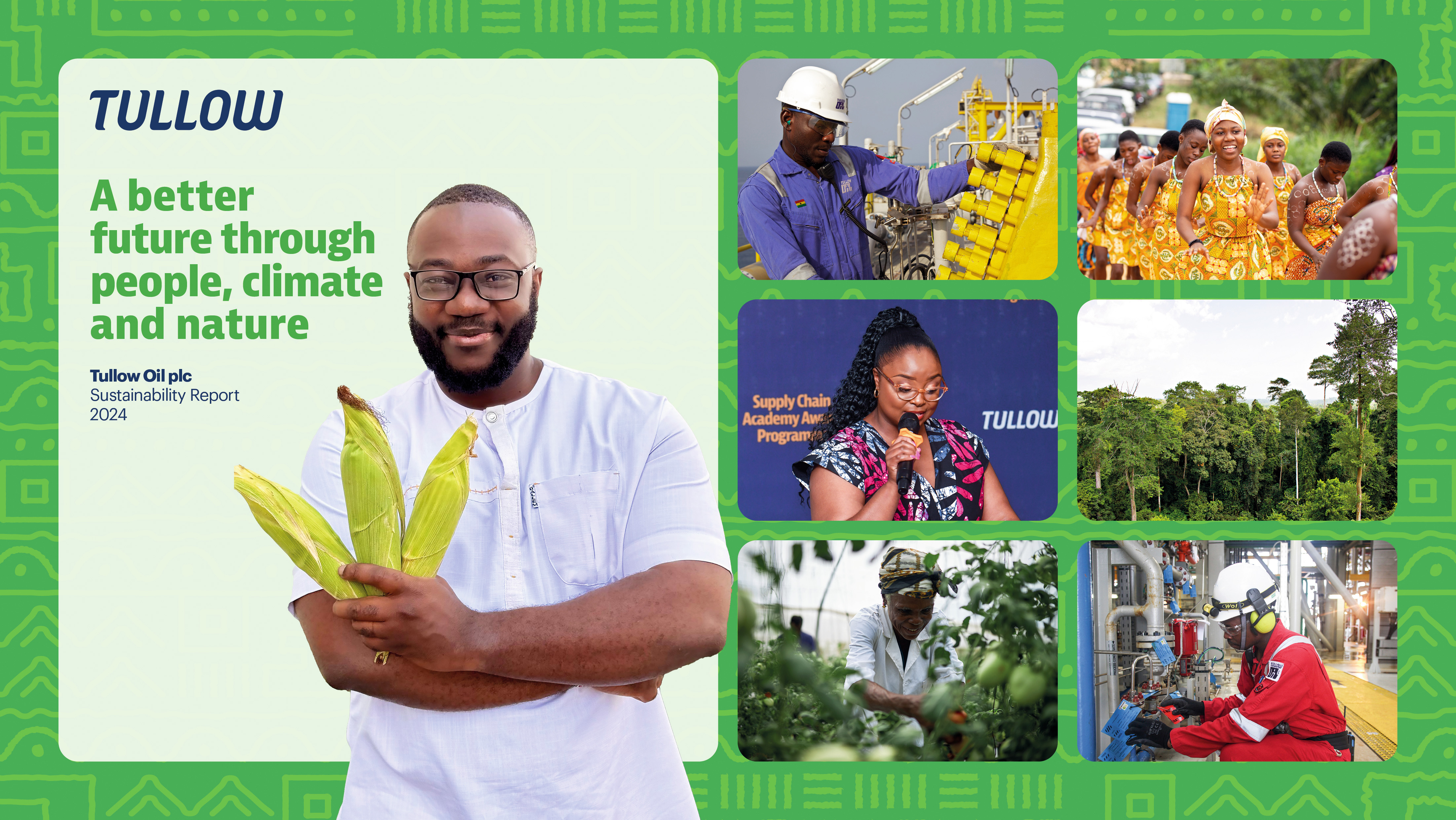Our focus is on mitigating our impacts on the environment through effective management systems, enhancing biodiversity practices and protecting ocean health.
We maintain proactive monitoring and conservation activities including responsible decommissioning practices while minimising material, waste and pollution impacts.
We operate comprehensive systems to assess and manage environmental risk and reduce negative environmental impacts.
We subscribe to the precautionary principle established in the Rio Declaration on Environment and Development in 1992 and promote sustainable development through our operations. We aim to comply with all applicable environmental laws and regulations in all the countries in which we operate.
Our Ghana operations are certified to ISO 14001:2015 Environmental Management Systems Standard, ensuring that the systems and processes which we apply to our key operating assets are consistently maintained. In 2024, we underwent a third-party audit to this standard with a result of zero non-conformances.
Preventing contamination to soil, water and air, practising responsible use and disposal of chemicals and hazardous materials, minimising overall waste generation and taking a circular approach to waste management are necessary to reduce potentially negative impacts on people, health, communities and the environment.
In 2024, our total waste volume reduced by 16%, reflecting both efficiency measures and a drop in hazardous wastes due to lower rig activity. We also maintained our focus on decreasing hazardous waste such as oily wastewater, liquids and chemical packaging leading to an overall reduction of 17% compared to 2023. Additionally, our total landfilled waste in Ghana reduced to 95 metric tonnes, representing a 43% reduction compared to 2023.
We aim to protect biodiversity wherever we operate and strive to minimise negative impacts of our operations at the planning, exploration, development and decommissioning phases. As well as minimising land impacts, we place a strong focus on ocean health.
In 2024, we completed a nature baseline assessment of our operated and non-operated assets across Ghana, Kenya and Côte d’Ivoire including our supply chain. Our environmental management efforts include ongoing monitoring of water quality, seabed conditions, and marine life, as well as mitigation measures to minimise potential impacts.
Our path forward aims to support the Kunming-Montreal Global Biodiversity Framework. To do this, we have developed a nature roadmap to mitigate impacts and risks, capture opportunities and meet stakeholder expectations. In the initial phase, starting with Ghana, by applying the mitigation hierarchy, we plan to achieve No Net Loss in our operations. This ambition has been approved by the Board and the Senior Leadership Team. See our inaugural TNFD Report for further details.
Our Sustainability Report 2024
This Sustainability Report complements our 2024 Annual Report and provides further details of our environmental and social performance over the past year.

